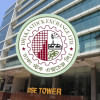An uneasy start to the week: Stocks skid after price curbs removed

The key stock index in Bangladesh dropped 1.52 percent yesterday, the first trading session after the floor price restrictions for all except 35 companies were lifted, amid nervousness among investors.
Market participants and analysts, however, said the fall, which was the steepest since October 10, 2022, was lower than they had expected given the artificial price measure that was put in place for a long time, the lingering economic crisis, and reduced corporate profits.
In fact, the DSEX, the benchmark index, plunged 3.4 percent, or more than 200 points, in the first eight minutes after the trading began, raising the spectre that the market was headed for a major plunge.
However, the worry did not translate into reality after investors came forward, helping the index pare down some of the losses. At the end of the day, the index stood at 6,240, down 96.5 points from a session earlier.
The plummet comes after the Bangladesh Securities and Exchange Commission (BSEC) withdrew the floor price for most stocks on Thursday, 18 months after the measure was imposed, amid demand from stakeholders.
"The key index bounced back strongly at the end of the day and the number of buyers was higher which was a good sign for the market," said Sajedul Islam, a former vice-president of the DSE Brokers Association (DBA).
He said many analysts had thought that there might be no buyer initially amid the persisting liquidity crunch, the erosion of confidence, and funds being stuck in the market for the floor.
"But investors have shown maturity."
Islam thinks the market will be in good shape in the coming days though there is still a confidence crisis.
"The political tension has petered out and the external tension centring the possibility of any trade sanction has eased. So, the market may return to the bull run soon."
The DSES Index, comprising Shariah-based companies, was down 14 points, or 1.02 percent, to 1,374 while the blue-chip index DS30 slipped 0.35 percent to 2,137.
Turnover fell 7.7 percent to Tk 588.87 crore from Thursday's Tk 637 crore. Of the securities that traded on the premier bourse of Bangladesh, 54 advanced, 296 declined, and 36 were unchanged.
The same trend was observed on the Chittagong Stock Exchange. The CASPI, the broad index of the port city bourse, fell more than 2.53 percent, or 476 points, to 18,329.
Sharif Anwar Hossain, a former president of the DBA, said some companies were overvalued and they were expected to decline once the floor price was lifted.
"However, the sales pressure was lower compared to what we had expected."
He said investors are observing the stocks. Once they are traded at their fair value, buyers will come forward.
He, however, pointed out that many stocks are already available at a low price, so they might not fall further.
Khan Brothers PP Woven Bag Industries posted the sharpest rise on the DSE yesterday, advancing 9.80 percent. Bangladesh Thai Aluminium surged 9.76 percent.
Rupali Life Insurance Company climbed 6.19 percent, Kohinoor Chemicals Company added 6.03 percent, Kay & Que was up 5.72 percent, and Deshbandhu Polymer rose 5.40 percent.
On the other hand, eight companies -- Shepherd Industries, Dragon Sweater and Spinning, Fareast Islami Life Insurance, Nurani Dyeing & Sweater, Paramount Textile, National Life Insurance, Zahintex Industries, and LankaBangla Finance – suffered the sharpest fall, losing 10 percent. Besides, more than 100 companies and mutual fund units declined over 9 percent.
Bangladesh Thai Aluminium, Union Capital, National Bank, BRAC Bank, and Deshbandhu Polymer were the most-traded stocks.
Al-Amin, an associate professor of accounting at the University of Dhaka, said he was not surprised by the market's behaviour on the first trading day after the floor price was scrapped.
"The floor had kept the prices of many shares at a certain level for a long time. So, it was anticipated that these companies would come under sales pressure. Therefore, the decline was not unaccepted."
The analyst thinks gradually, these shares will reach a price level that is rational for them. Then, they will be able to attract buyers again.
"Because of the floor price, turnover had remained at a low level. But once the correction takes place, the volume will go up again. So, investors should not panic. They will have to hold patience."

 For all latest news, follow The Daily Star's Google News channel.
For all latest news, follow The Daily Star's Google News channel. 






Comments